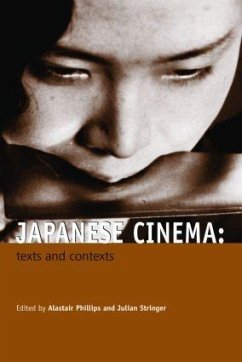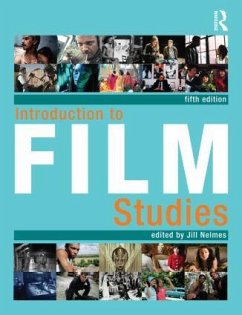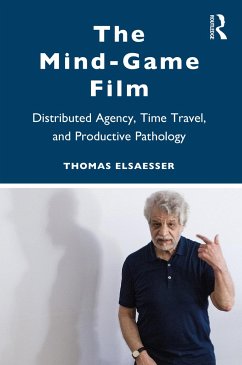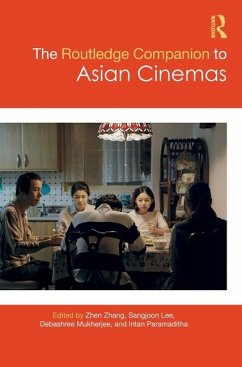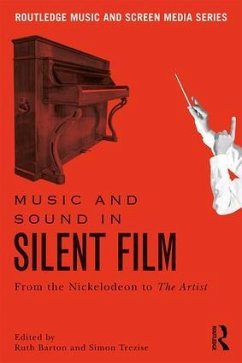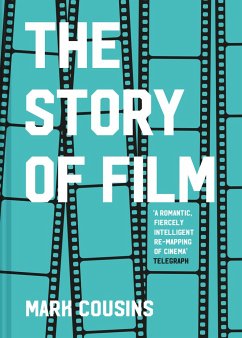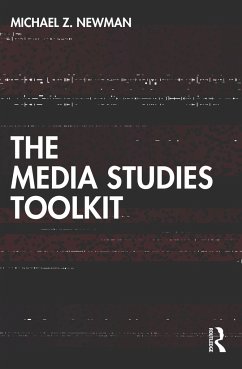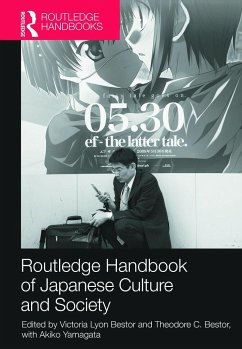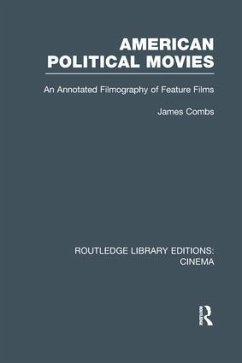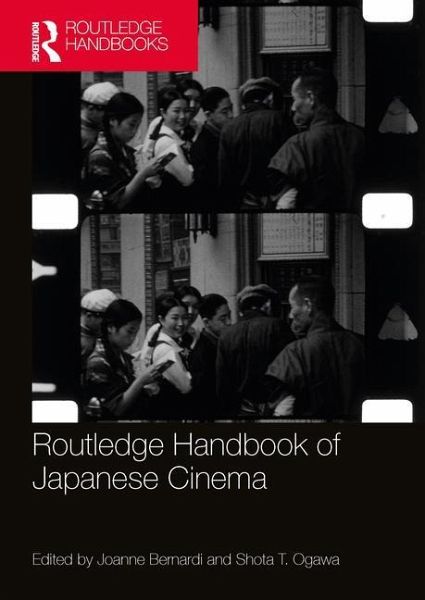
Routledge Handbook of Japanese Cinema
Versandkostenfrei!
Versandfertig in 6-10 Tagen
49,99 €
inkl. MwSt.

PAYBACK Punkte
25 °P sammeln!
The Routledge Handbook of Japanese Cinema provides a timely and expansive overview of Japanese cinema today, through cutting-edge scholarship that reflects the hybridity of approaches defining the field.The volume's twenty-one chapters represent work by authors with diverse backgrounds and expertise, recasting traditional questions of authorship, genre, and industry in broad conceptual frameworks such as gender, media theory, archive studies, and neoliberalism. The volume is divided into four parts, each representing an emergent area of inquiry:"Decentring Classical Cinema""Questions of Indust...
The Routledge Handbook of Japanese Cinema provides a timely and expansive overview of Japanese cinema today, through cutting-edge scholarship that reflects the hybridity of approaches defining the field.
The volume's twenty-one chapters represent work by authors with diverse backgrounds and expertise, recasting traditional questions of authorship, genre, and industry in broad conceptual frameworks such as gender, media theory, archive studies, and neoliberalism. The volume is divided into four parts, each representing an emergent area of inquiry:
"Decentring Classical Cinema"
"Questions of Industry"
"Intermedia as an Approach"
"The Object Life of Film"
This is the first anthology of Japanese cinema scholarship to span the temporal framework of 200 years, from the vibrant magic lantern culture of the nineteenth century, through to the formation of the film industry in the twentieth century, and culminating in cinema's migration to gaming, surveillance video, and other new media platforms of the twenty-first century.
This handbook will prove a useful resource to students and scholars of Japanese studies, film studies, and cultural studies more broadly.
The volume's twenty-one chapters represent work by authors with diverse backgrounds and expertise, recasting traditional questions of authorship, genre, and industry in broad conceptual frameworks such as gender, media theory, archive studies, and neoliberalism. The volume is divided into four parts, each representing an emergent area of inquiry:
"Decentring Classical Cinema"
"Questions of Industry"
"Intermedia as an Approach"
"The Object Life of Film"
This is the first anthology of Japanese cinema scholarship to span the temporal framework of 200 years, from the vibrant magic lantern culture of the nineteenth century, through to the formation of the film industry in the twentieth century, and culminating in cinema's migration to gaming, surveillance video, and other new media platforms of the twenty-first century.
This handbook will prove a useful resource to students and scholars of Japanese studies, film studies, and cultural studies more broadly.





